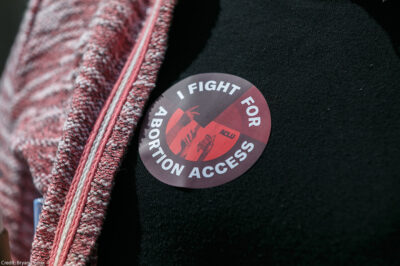Today, in the case Cochran v. Commonwealth, the Kentucky Supreme Court affirmed that a pregnant woman cannot be thrown in jail for no other reason than that she struggles with a substance abuse problem. (Together with the ACLU of Kentucky, the ACLU submitted an amicus brief in the case). We are thrilled with the decision, of course — it is a huge victory not only for Ina Cochran, who has been fighting this case for four years, but for the other women currently facing similar prosecutions throughout the state.
In its decision, the court recognized that prosecuting a woman who struggles with addiction has several consequences — all of which undermine the health of moms and babies. Medical organizations are nearly unanimous in opposing these sorts of prosecutions because they drive women away from the very people who can help them.
The court left no doubt that, not only do these prosecutions make for bad public health policy, they also make for bad law. If a pregnant woman can be charged with a crime for potentially harming her fetus, then literally everything she does or does not do — including choosing to have a baby despite an underlying health condition — could land her in jail. What if a pregnant woman has a glass of wine with dinner now and then, or lives with a smoker; what if she drives over the speed limit, fails to get regular pre-natal care, or works in a coal mine, as many women in Kentucky do?
As the ACLU made clear in its brief, allowing the government to exercise such unlimited control over women's bodies, and every aspect of their lives, would essentially reduce pregnant women to second-class citizens, denying them the basic constitutional rights enjoyed by the rest of us.
Today, Ms. Cochran's long legal battle has come to an end. There should no longer be any question: Ms. Cochran never should have been charged. The women whose similar prosecutions are still pending never should have been charged either. Let's hope — for the sake of all women in Kentucky — that the prosecutors get the message.



